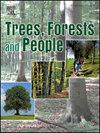评估正式和感知土地权利对果树种植的动态影响:探讨森林生态、性别和土地征用方式的调节作用
IF 2.9
Q1 FORESTRY
引用次数: 0
摘要
有保障的土地权利对于鼓励长期农业投资至关重要,特别是在发展中国家。反过来,果树因其营养、经济和环境效益在生计中发挥着关键作用。然而,在埃塞俄比亚,通过正式和感知的土地权利来衡量的安全土地使用权对果树种植的具体影响仍未得到充分探索。此外,人们对性别、当地土地利用和土地征用模式如何调节这种关系的理解有限。本研究使用具有全国代表性的面板数据来解决这些差距。结果表明,有保障的土地权利,无论是正式的还是感知的,都显著促进了果树的种植,无论是在树木的数量还是在地块上种植树木的可能性方面。值得注意的是,这种影响会随着时间的推移而增强。然而,异质性分析表明,这种影响因当地土地利用、性别和土地征用方式等环境和社会因素而有很大差异。具体而言,该研究发现,在森林生态系统内的社区,有保障的土地权的影响比在非森林地区更为明显。这些发现支持财产权的经济理论,证明有保障的土地权属促进果树种植,有助于可持续农业。该研究强调了通过降低成本和扩大获得土地认证的机会来加强使用权保障的政策的重要性。此外,通过有针对性的干预措施解决性别差异问题可以使女性土地所有者更有效地行使财产权,从而促进埃塞俄比亚和类似国家的投资和改善经济成果。本文章由计算机程序翻译,如有差异,请以英文原文为准。
Assessing the dynamic impact of formal and perceived land rights on fruit tree cultivation: Exploring the moderating role of forest ecology, gender, and land acquisition method
Secure land rights are essential for encouraging long-term agricultural investment, particularly in developing countries. Fruit trees, in turn, play a critical role in livelihoods due to their nutritional, economic, and environmental benefits. However, the specific effects of secure land tenure—measured through both formal and perceived land rights—on fruit tree cultivation in Ethiopia remain underexplored. In addition, there is limited understanding of how gender, local land use, and modes of land acquisition moderate this relationship. This study addresses these gaps using nationally representative panel data. The results show that secure land rights, whether formal or perceived, significantly promote fruit tree cultivation, both in terms of the number of trees and the likelihood of tree adoption on a plot. Notably, this impact strengthens over time. However, heterogeneity analysis reveals that the effect varies considerably depending on environmental and social factors, including local land use, gender, and land acquisition methods. Specifically, the study finds that the impact of secure land rights is more pronounced in communities located within forest ecosystems than in non-forest areas. These findings support the economic theory of property rights by demonstrating that secure land tenure fosters fruit tree cultivation, contributing to sustainable agriculture. The study underscores the importance of policies that enhance tenure security by reducing costs and expanding access to land certification. Moreover, addressing gender disparities through targeted interventions could empower women plot holders to exercise property rights more effectively, thereby boosting investment and improving economic outcomes in Ethiopia and similar settings.
求助全文
通过发布文献求助,成功后即可免费获取论文全文。
去求助
来源期刊

Trees, Forests and People
Economics, Econometrics and Finance-Economics, Econometrics and Finance (miscellaneous)
CiteScore
4.30
自引率
7.40%
发文量
172
审稿时长
56 days
 求助内容:
求助内容: 应助结果提醒方式:
应助结果提醒方式:


